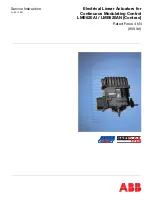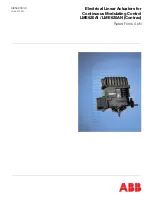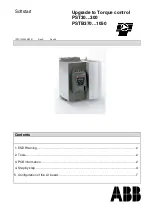
7-27
Section
Pulse Output Instructions
491
In continuous mode, pulses will be output indefinitely until stopped by executing
INI(61) with C=003, executing SPED(64) again with F=0000, or switching the
PC to PROGRAM mode.
Pulse frequency
Time
Flags
ER:
A data area boundary is exceeded.
Indirectly addressed DM word is non-existent. (Content of *DM word is
not BCD, or the DM area boundary has been exceeded.)
P is not 000 or 010, M is not 000 or 001, or F is not 0000 to 1000.
SPED(64) is executed in an interrupt subroutine while a pulse I/O or
high-speed counter instruction (INI(61), PRV(62), CTBL(63),
SPED(64), PULS(65), ACC(––), PWM(––), or SYNC(––)) is being
executed in the main program.
7-27-3
ACCELERATION CONTROL – ACC(––)
P:
Port specifier
000
Ladder Symbols
Operand Data Areas
@ACC(––)
P
M
C
C
: First control word
IR, SR, AR, DM, HR, LR
M:
Mode specifier
000, 002, or 010 to 013
ACC(––)
P
M
C
Limitations
This instruction is available in the
CPM2A/CPM2C only
.
P must be 001 or 002 and M must be 000 to 003.
C to C+3 must be in the same data area.
Description
ACC(––) is used to specify the acceleration/deceleration rate and start the pulse
output for a pulse output with trapezoidal acceleration and deceleration.
In general, ACC(––) should be executed just once each time that the accelera-
tion/deceleration rate needs to be set; use the differentiated variation
(@ACC(––)) or an input condition that is ON for just one cycle.
Note
Refer to
2-5 Pulse Output Functions
for more details.
Port Specifier (P)
Always set the port specifier to 000. The 000 setting specifies single-phase
pulse output 0 with trapezoidal acceleration and deceleration.
Operation in Continuous
Mode
















































